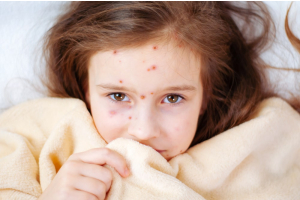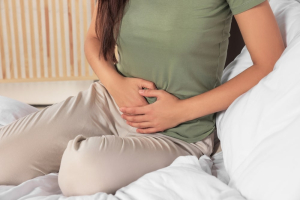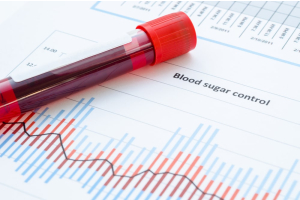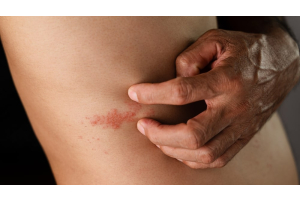Tips for Identifying Chickenpox in Children
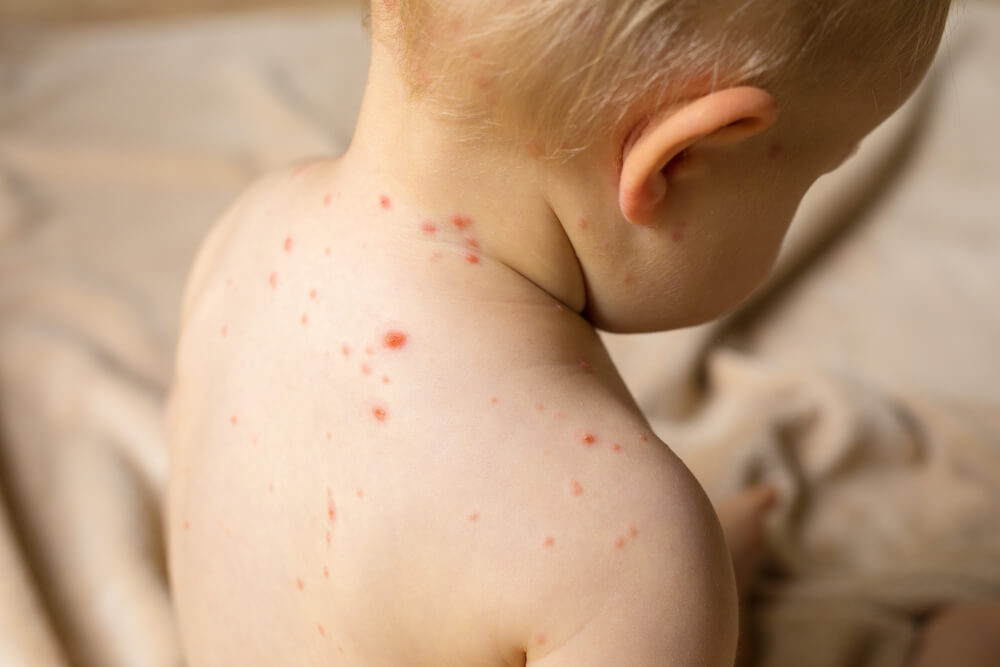
Chickenpox, a common childhood illness, can be a cause of concern for parents. Chickenpox is caused by the varicella-zoster virus and is highly contagious. Early recognition is important for timely treatment and preventing its spread. In this article, we will discuss chickenpox symptoms in children, tips for recognising the disease, treatment options and the importance of Chickenpox vaccination.
Chickenpox Symptoms in Children
Chickenpox symptoms typically begin with a mild fever, headache and tiredness, followed by the appearance of a red, itchy rash. The rash transforms into fluid-filled blisters that eventually scab over. Children may also experience loss of appetite and general malaise.
The virus spreads through respiratory droplets or direct contact with the rash. It is important to be vigilant for these signs, as early detection can help manage symptoms and prevent complications.
7 Tips for Recognising Chickenpox in Children
Recognising chickenpox in children is important for timely treatment and preventing its spread. Here are seven tips to help you identify the signs of this contagious illness:
● Look for Early Symptoms: Chickenpox often starts with symptoms similar to a common cold. Before the characteristic rash appears, children may experience fever, headache, sore throat and a general feeling of being unwell. These early signs can last for one to two days and serve as a warning that chickenpox may be developing.
● Identify the Rash: The most recognisable symptom of chickenpox is the rash that usually begins on the face, chest and back before spreading to other parts of the body. Initially, the rash appears as small red spots (papules) that quickly develop into fluid-filled blisters (vesicles) within 24 hours. These blisters are typically very itchy and can cause discomfort.
● Observe the Progression: Chickenpox rash goes through several stages. After the blisters form, they eventually burst and crust over to form scabs. New spots may continue to appear in waves for three to five days. Observing this progression can help differentiate chickenpox from other rashes that might not follow the same pattern.
● Check for Itching: One of the hallmark symptoms of chickenpox is intense itching. If your child is constantly scratching, especially in conjunction with a rash, it's a strong indicator of chickenpox. It's important to try and prevent excessive scratching to avoid secondary infections and scarring.
● Monitor for Fever: Along with the rash, a mild fever is a common symptom of chickenpox. The fever can start a day or two before the rash appears and last, until the blisters have crusted over. While fever alone is not a definitive sign of chickenpox, when paired with a rash and other symptoms, it can help confirm the diagnosis.
● Look for Clusters: Chickenpox blisters often appear in clusters and can cover large areas of the body. These clusters can be more pronounced in areas like the scalp, face and torso. The distribution and grouping of the rash can be a key factor in recognising chickenpox.
● Consult a Doctor: If you suspect your child has chickenpox, it's important to consult a healthcare professional for a definitive diagnosis. They can provide guidance on managing symptoms and advise on any necessary precautions to prevent the spread of the virus to others, especially to individuals who may be at higher risk of complications.
Treatment for Chickenpox
There is no treatment for chickenpox and the virus usually resolves on its own within a week or two. Treatment focuses on relieving symptoms, such as using calamine lotion for itching and giving children paracetamol for fever.
It's important to keep children hydrated and ensure they get plenty of rest. Avoid giving aspirin to children with chickenpox, as it can lead to serious complications. Consult a doctor for advice on antiviral medications for severe cases.
Chickenpox Vaccination - Is it Effective?
The chickenpox vaccine is the most effective way to prevent the disease. The vaccine is highly effective and can prevent severe illness.
In cases where vaccinated individuals do contract chickenpox, the symptoms are often milder. It's important to vaccinate children not only to protect them but also to contribute to herd immunity, reducing the spread of the virus in the community.
How to Get Chickenpox Vaccine in the UK?
In the UK, vaccines can be privately availed if you live in areas such as Streatham, Tolworth, Tooting, Wandsworth or Wimbledon, by contacting us for chickenpox vaccine. We offer travel clinic services and can provide the vaccine to both children and adults who wish to be immunised against chickenpox. It's advisable to consult with a healthcare professional at Pearl Chemist Group to discuss your needs and arrange for vaccination.
Book Your Appointment With Pearl Chemist Group
Recognising chickenpox early in children is key to managing symptoms and preventing the spread of the virus. By being aware of the early signs, identifying the characteristic rash and consulting healthcare professionals, parents can ensure timely treatment.
Vaccination plays an important role in prevention, offering long-lasting protection against chickenpox. By staying informed and proactive, parents can help safeguard their children's health and well-being against this common childhood illness.
For your convenience and protection, you can get the chickenpox vaccine from us at Pearl Chemist Group. Schedule an appointment today to ensure you and your loved ones are safeguarded against this contagious disease.


